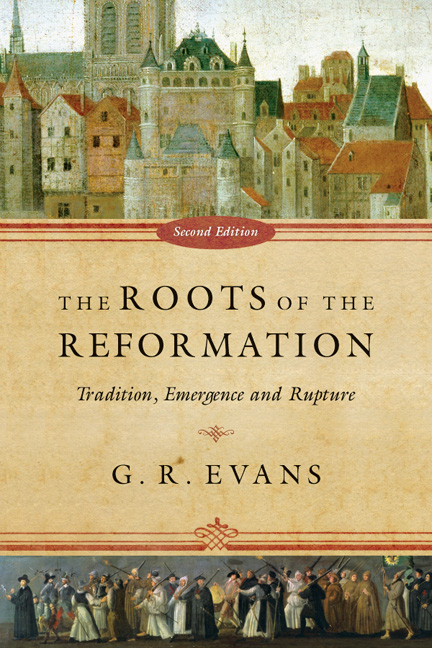 My studies in James over the last year and more are beginning to bear some homiletical fruit. For the last month I have been preaching out of James 1, one sermon at Mt Hawthorn Baptist Church on James 1:2-8, and three sermons covering the whole chapter at Harmony Baptist Church in Mosman Park. Today is part three of this little series.
My studies in James over the last year and more are beginning to bear some homiletical fruit. For the last month I have been preaching out of James 1, one sermon at Mt Hawthorn Baptist Church on James 1:2-8, and three sermons covering the whole chapter at Harmony Baptist Church in Mosman Park. Today is part three of this little series.
*****
Introduction
Roof story – looked okay but was not. When I stepped on it, it started to give beneath my feet. The roof structure lacked integrity, being flawed, internally compromised. Integrity refers the state of being whole, entire, or undiminished; a sound, unimpaired, or perfect condition. What you see is what you get: it is honest, it is true.
James, too, is concerned with that which is true. He is very concerned with true Christianity, genuine religion, authentic spirituality, a faith which has integrity, a theme which comes to the fore in the climax of chapter one.
Before launching into today’s text, however, let’s retrace some of the ground we have already covered in the last two weeks:
- When Troubles Come – Pressure from the outside intended to destroy our faith. Our response: Stand fast! Persevere! We persevere in praise and thanksgiving, in prayer and faith, and we stand fast together; and all this because God is the generous God, single-minded in his goodness.
- When Temptations Come – Pressure on the inside which threatens to lure us away from God, his blessing and his purpose. Our response: Stand fast! Persevere! We persevere in love for God first and foremost, and in the new life God has given us, participating in God’s mission in the world, and looking forward to “the crown of life” in the world to come; and all this because God is only, ever and always good.
In our text today, James continues this theme addressing, as it were, two big questions:
- What is the character of this new life? What is it like?
- How do we live this new life?
James 1:19-25
My dear brothers and sisters, take note of this: everyone should be quick to listen, slow to speak and slow to become angry, because human anger does not produce the righteousness that God desires. Therefore, get rid of all moral filth and the evil that is so prevalent, and humbly accept the word planted in you, which can save you.
Do not merely listen to the word, and so deceive yourselves. Do what it says. Anyone who listens to the word but does not do what it says is like someone who looks at his face in a mirror and, after looking at himself, goes away and immediately forgets what he looks like. But whoever looks intently into the perfect law that gives freedom and continues (perseveres!) in it – not forgetting what they have heard but doing it – they will be blessed in what they do. (Or, “not forgetting what they have heard, but being a doer of the work…”)
Receive the Implanted Word
How do we live this new life that God has given? By the same means by which it began—the Word of God who “has given us birth through the Word of truth” (v. 18). Thus James says, “Get rid of all moral filth, and the evil that is so prevalent, and humbly accept the word planted in you which is able to save you” (v. 21).
- The word implanted is designed to grow and bring forth a harvest of righteousness in our lives.
- KJV: the “engrafted” Word. Fruit-tree analogy – grafting the new life of God into our lives. How? Through reading, hearing and meditation of the Scriptures.
But be “doers of the Word, not hearers only!” Meditation in the Scriptures leads to action. Those who only hear the Word without obeying it deceive themselves: their spirituality is not authentic.
James’ teaching here is an echo of Jesus’ teaching in the Gospel of Matthew 4:4: “One shall not live by bread alone, but by every Word which proceeds from the mouth of God.” According to Jesus, believers are to live by the Word of God, allowing God’s Word to speak to us, counsel us and guide us, direct us and shape us, as we orient our lives toward the presence, the purpose and promises of God. God calls us to lives shaped and moulded and trained by Scripture. The “forgetful hearer” simply “goes his way,” the word having no enduring impact or effect on his daily life. This forgetful hearer is headed for trouble—Matthew 7:24-27.
And so we come again to verse 25: “But the one who looks into the perfect law of liberty, and perseveres, being no hearer who forgets but a doer who acts (or, a doer of the work), he shall be blessed in his doing.” James, in this verse, shifts his language from Word to “law,” and from being “doers of the Word” to “doers of the work.” What do these shifts mean? Quite simply, James emphasises the call and the demand of the gospel. In chapter two he will bring this out with great clarity: “faith without works is dead.” The gospel is not simply the promise of salvation in and through Jesus, but also the call to follow him. Many commentators believe that James considers that Jesus’ teaching constituted the law made new, that the “law” here refers to Jesus’ ethical teaching. It is clear that for James, real religion, authentic spirituality, is a matter of obedience to the Word of truth, the gospel, the teaching of Jesus, the Word of God, and that such obedience is crowned with blessing, both now “in the doing,” and with a crown of life in the age to come (v. 12).
What Is This New Life Like?
What “work” does James have in mind? What does it mean to be “a doer of the Word/work?” At this point James gets very specific and says very clearly what this “work” is:
James 1:26-27
Those who consider themselves religious and yet do not keep a tight rein on their tongues deceive themselves, and their religion is worthless. Religion that God our Father accepts as pure and faultless is this: to look after orphans and widows in their distress and to keep oneself from being polluted by the world.
Here James identifies three characteristics of “real religion, authentic spirituality, and genuine faith”—the kind which goes beyond the performance of a few religious practices that do not have any enduring impact on our daily existence. These three characteristics are his major concerns and will be picked up in the rest of the letter.
- A New Community
Watch your words—tame your tongue! The most seemingly spiritual person in the world is not spiritual at all if they do not keep a tight rein on their tongue! How easily words slip out: words of frustration and anger, words of criticism, demeaning, shaming words. Perhaps James has in mind especially angry words:
James 1:19-20
My dear brothers and sisters, take note of this: everyone should be quick to listen, slow to speak and slow to become angry, because human anger does not produce the righteousness that God desires.
Importantly, however, James does not have an abstract interest in the tongue: one scholar has noted that there are 29 commands in this letter directly addressing speech ethics. This is a primary concern of James,’ and will occupy the main part of chapter 3, as well as re-appearing in chapters 4 and 5. But again, James’ interest is not abstract; he is concerned about the use of the tongue because of power to destroy the community of God’s people. Verses 19-20 are not just Readers Digest good advice! They are directed against those in the community who are at war with one another, expressing anger and malice toward one another, quarrelling and fighting with one another, and as St Paul says, biting and devouring one another. Sins of the mouth tear down the people of God. Failure to bridle the tongue, to speak wisely and with respect and care undermines genuine spirituality. Thus, for James, authentic spirituality involves being a genuine and loving community. Notice how many times James refers to his listeners using the term “brothers and sisters” (vv. 2, 16, 19; 2:1, 5, 14, etc.). The church is a new family, intimately related as siblings, and called to care for and respect one another. What a tragedy when families fight and hurt and desert one another!
But James takes his vision of community even further, in verses in this chapter we have not yet read:
James 1:9-11
Believers in humble circumstances ought to take pride in their high position. But the rich should take pride in their humiliation – since they will pass away like a wild flower. For the sun rises with scorching heat and withers the plant; its blossom falls and its beauty is destroyed. In the same way, the rich will fade away even while they go about their business.
The poor and lowly can rejoice in their new position in Christ! They have been exalted by God into the highest place. Though their earthly circumstances have not yet changed, they may hope for the future when the “great reversal” takes place, when the lowly are exalted and the mighty are brought low (cf. Luke 1:51-53; 6:20-26).
Arguably much more difficult, the rich are also commanded to “take pride in” or boast in—their humiliation! In James’ day, the church was mainly composed of the poor. But if a rich man or woman became a Christian and a member of the Christian community, there was a real humiliation involved. Now they were identified with a socially despised and dishonoured group of people. Now they associated with the poor and the outcast, the disreputable and the unclean. Becoming a Christian involved real social downward mobility—and James tells them to rejoice!
Here James’ words take on a new twist: a social reversal has occurred – in the church. Although the great reversal in itself still lies in the future, it issues here and now in a radical transformation of one’s own perception of oneself, and in the community. Here and now there is a re-ordering of expectation, of desire, of value, and of relationships on account of the new reality which has arrived in Jesus, and which will be enacted in the eschatological judgement. Here and now the poor are welcomed as honoured, indeed, primary members of the kingdom community. Here and now the rich embrace humiliation, precisely by entering into solidarity with the poor and despised Jesus followers. The Christian community enacts on the historical level the hope to be realised in the kingdom of God. It is becoming a community in which one’s identity is founded, not on one’s socio-economic status, but on one’s status in Christ. A revaluation has occurred with the values and priorities of the earthly city giving way to the values and priorities of the heavenly city. James has a vision of the eschatological kingdom which exists not only in the future, but impinges upon the present and presses toward expression in the community of God’s people, here and now.
- A Community of Care and Compassion
James’ second characteristic of real religion is compassion—love in action, hands-on, sleeves-rolled-up care for the vulnerable in our midst. Just as God visited his old covenant people in order to rescue them, so God’s people are to visit and care for those in need. Widows and orphans were amongst the most powerless groups in the ancient world. It is, of course, legitimate to extend the metaphor in our age and location to those who are in need, though they may not be widows and orphans. I have been greatly challenged by Eugene Peterson’s rendering of this verse:
Real religion, the kind that passes muster before God the Father, is this: Reach out to the homeless and loveless in their plight, and guard against corruption from the godless world.
The vulnerable in our society include the homeless and loveless. They may also be the mentally ill, the elderly, the physically disabled, the indigenous, the abandoned, the unemployed, the refugee or recent arrival. To be a “doer of the work” involves caring for those in our networks and our neighbourhood who are vulnerable.
- A “Clean” Community
Finally James zeroes in on our own moral purity and personal holiness. He calls his listeners to keep themselves “unstained from the world.” James is not a dualist; he believes that this is God’s world because God is the universal Creator and Father of Lights. Nevertheless, the “world” is here seen in its fallenness, in its organisation against the will, the ways and the wisdom of God.
It is clear that James envisaged a decisive turning away from sin, sinful patterns of life, and concrete sinful practices: Make no mistake! (v. 16). Put away all evil! (v.21). What kind of sins does James have in mind? No doubt all kinds of sin. But his emphasis in this letter focusses on interpersonal sins, especially those of the tongue, selfish ambition in the community, and those which oppress or fail to give due heed to the poor. There is a real engagement in the world and yet at the same time a genuine separation from its values, commitments and practices.
There is need for mature wisdom here (v. 5), because sometimes there is tension between the first two characteristics of authentic spirituality, and the third. Can a community welcome and care for those who are not “clean”? Perhaps a way forward here, is to apply Jesus’ wisdom from Mark 9:50: “Have salt in yourselves, and be at peace with each other.” We can be strict on ourselves and gentle and kind toward others. Too often churches have this the wrong way around.
Conclusion
Two big questions:
- How do we live this new (Christian) life? By receiving (and doing) the Word. By being doers of the Word and of the Work.
- What is the nature of this new life? A life in welcoming, caring community in which we seek to love, trust and serve God together, and become vessels of his goodness in the world.
 As I was reading the Bible one morning this week, I had “a moment.” Not a major moment, a life-transforming moment, not a remember-this-for-the-rest-of-my-life-because-God-spoke-to-me moment, not a spiritual experience moment, but a moment nonetheless. The passage I was reading was Exodus 31, where the Lord tells Moses about Bezalel and Oholiab, two master craftsmen who are to take charge in the construction of all that God has commanded Moses to build with respect to the tabernacle and its furniture, as well as the high priest’s garments and accoutrements.
As I was reading the Bible one morning this week, I had “a moment.” Not a major moment, a life-transforming moment, not a remember-this-for-the-rest-of-my-life-because-God-spoke-to-me moment, not a spiritual experience moment, but a moment nonetheless. The passage I was reading was Exodus 31, where the Lord tells Moses about Bezalel and Oholiab, two master craftsmen who are to take charge in the construction of all that God has commanded Moses to build with respect to the tabernacle and its furniture, as well as the high priest’s garments and accoutrements.




